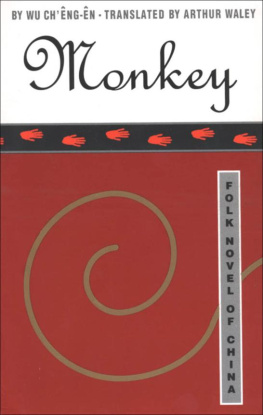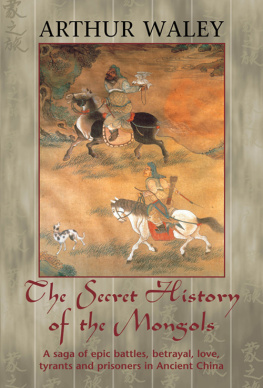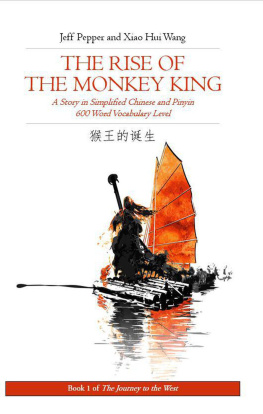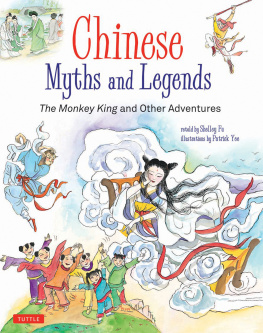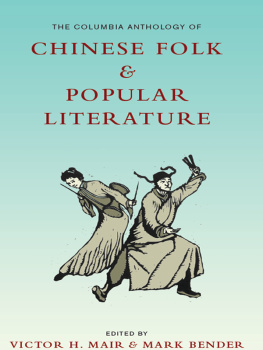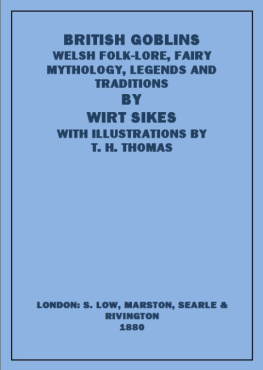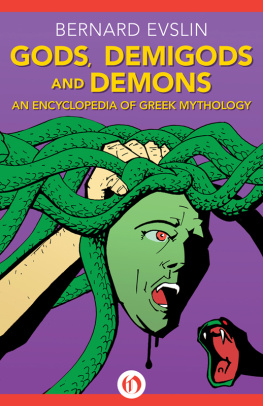MONKEY
Other Books by Arthur Waley
The Book of Songs (Arthur Waley, tr.)
The N Plays of Japan
The Way and Its Power
UNESCO COLLECTION OF REPRESENTATIVE WORKSCHINESE SERIES
This book has been accepted in the Chinese Translations Series of the
United Nations Educational, Scientific and Cultural Organization (UNESCO).
MONKEY
Wu Chng-n
Translated from the Chinese by
ARTHUR WALEY


Copyright 1943 by John Day Company, Inc.
Copyright renewed 1970 by Alison Waley
All rights reserved. No part of this book may be reproduced in any form or by any electronic or mechanical means, or the facilitation thereof, including information storage and retrieval systems, without permission in writing from the publisher, except by a reviewer, who may quote brief passages in a review. Any members of educational institutions wishing to photocopy part or all of the work for classroom use, or publishers who would like to obtain permission to include the work in an anthology, should send their inquiries to Grove/Atlantic, Inc., 841 Broadway, New York, NY 10003.
Printed in the United States of America
Library of Congress Cataloging-in-Publication Data
Wu, Cheng-en, ca. 1500-ca. 1582.
Monkey.
(An Evergreen book; E-112)
Translation of: Hsi yu chi.
Folk novel of ChinaCover.
1. Hsuan-tsang, ca. 596-664Fiction. I. Waley,
Arthur. II. Title.
PL2697.H75E5 1984 895.135 84-22583
ISBN-10: 0-8021-3086-0
ISBN-13: 978-0-8021-3086-0
Grove Press
an imprint of Grove/Atlantic, Inc.
841 Broadway
New York, NY 10003
Distributed by Publishers Group West
www.groveatlantic.com
09 10 11 12 55 54 53 52 51 50 49 48
TO
BERYL AND HAROLD
CONTENTS
INTRODUCTION TO THE AMERICAN EDITION
I was very fond of strange stories when I was a child. In my village-school days, I used to buy stealthily the popular novels and historical recitals. Fearing that my father and my teacher might punish me for this and rob me of these treasures, I carefully hid them in secret places where I could enjoy them unmolested.
As I grew older, my love for strange stories became even stronger, and I learned of things stranger than what I had read in my childhood. When I was in my thirties, my memory was full of these stories accumulated through years of eager seeking.
I have always admired such writers of the Tang Dynasty as Tuan Cheng-shih and Niu Sheng-ju, who wrote short stories so excellent in portrayal of men and description of things. I often had the ambition to write a book (of stories) which might be compared with theirs. But I was too lazy to write, and as my laziness persisted, I gradually forgot most of the stories which I had learned.
Now only these few stories, less than a score, have survived and have so successfully battled against my laziness that they are at last written down. Hence this Book of Monsters. I have sometimes laughingly said to myself that it is not I who have found these ghosts and monsters, but they, the monstrosities themselves, which have found me!
Although my book is called a book of monsters, it is not confined to them: it also records the strange things of the human world and sometimes conveys a little bit of moral lesson....
Thus wrote Wu Chng-n in his preface to a book of short stories written in the classical language. This collection has been lost; but this preface, fortunately preserved in his Collected Writings, tells us much about the future author of Monkey or Hsi Yu Ki. It tells of his boyhood delight in the strange stories and historical recitals written in the living tongue of the people. It reveals his life-long ambition to write a great book of stories about ghosts and monsters which was to rival the stories by the famous writers of Tang, and which, though primarily about monsters, did not exclude the strange things of our human world and might also convey a little bit of moral lesson.
All this he might have written of the Monkey, had he cared to write a preface to it under his own name. He had apparently grown dissatisfied with his monster stories composed in the classical style in imitation of the Tang writers. At long last, he decided to carry out his great literary ambition by writing a greater book of monsters in the language of the vulgar literature of his time. But it was such a great disgrace for a man of literary reputation to produce a novel in the vulgar tongue that the story was published anonymously. And nothing in the two volumes of his Collected Writings (discovered in the Imperial Palaces and reprinted by the Palace Museum Library, 1930) gives the slightest hint of his connection with the book. Just as he in his early boyhood could only enjoy the novels and stories in secret hiding places, so he in his old age had to conceal the authorship of his great masterpiece in anonymity.
For his age was an era of literary reaction. The leading men of letters of the sixteenth century were vehemently advocating a return to the poetry and prose of the greatest classical periods. Their war-cry was: No prose after the Han Dynasty; no poetry after the First Period (ending 770 A.D., the year of the death of Tu Fu) of the Tang Dynasty!
This movement of classical revival was led by the so-called Early Seven Geniuses (about 1495-1530) and Later Seven Geniuses (about 1550-1590). Our author Wu Chng-n (c. 1500-1580) was not only contemporaneous with these movements, but was an intimate friend of Hsu Chung-hsing (1517-1578), one of the Later Seven.
But even as these great leaders preached and produced their imitative classical literature, a new literature of great vitality and power was growing up from among the people and was forcing itself upon the attention and affection of all the classes. This new literature comprised the folk songs, folk tales, historical recitals and popular tales of ghosts, judges (detectives of crime), and heroes. Many skilfully told short stories had been in existence ever since the Sung time. A number of the longer novels had come to be written down, revised and rewritten in the course of transmission, and finally printed and sold as best-sellers among the people. Of these serial stories, the San Kuo (Three Kingdoms) and the Shui Hu Chuan (which Pearl Buck translated as All Men Are Brothers) had more or less attained their present form before the end of the fifteenth century. These novels and stories were read by everybody who could read, although nobody probably would admit having read them. And school boys were severely punished for having read and enjoyed them.
The literary evolution of Wu Chng-n is typical of many an author of Chinese novels. He loved the vulgar novels in his boyhood; he went through his classical education and training and became ashamed of his boyish delights; he wrote his imitative poetry and prose in the classical style; he tried to write his stories in imitation of the story-writers of Tang and Sung; finally, in his mellow old age, he took the bold step of producing his masterpiece in the language of the street and the market-place and published it anonymously.
Wu died without any children. The anonymity of the authorship of Monkey was so complete that for over three centuries the general reading public actually believed that the story was written by the Taoist Patriarch Chiu Chu-ki (1148-1227) who in 1219 was invited by Genghis Khan to visit him in Central Asia and who left a record of his travels under the title
Next page
